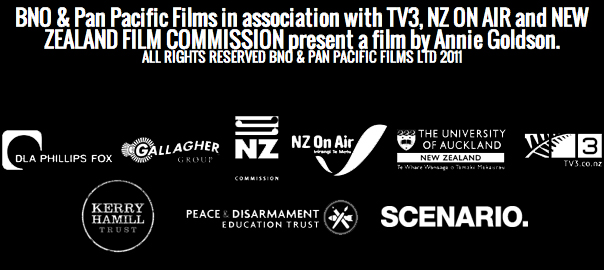Director Annie Goldson has suggested that her film Brother Number One works as part of an unplanned ‘trilogy’ of documentary feature films which she has made, which are concerned with human rights issues in the Asia-Pacific region. The first and second films in this ‘trilogy’ are Punitive Damage (1999), which focussed on New Zealander Helen Todd’s involvement in a landmark international court case against the Indonesian military for the death of her son in an East Timor political massacre, and An Island Calling (2009), about the double murder of an openly gay couple living in Fiji - John Scott, a European Fijian, who was head of the Fijian arm of the aid organisation Red Cross, and his partner, New Zealander Greg Scrivener. Taken together, the three films which constitute Goldson’s ‘trilogy’ align her work with traditions of political activism and human rights documentaries. More specifically, they provide an insight into the director’s motivation and concerns as a documentary maker.
1 | Analyse and discuss the three feature films - Punitive Damage, An Island Calling and Brother Number One - in relation to one another. What common themes, images or narrative devices are apparent? Consider: the repeated focus on the Asia-Pacific region, the impact of colonialism and of Cold War politics, the representation of violent, extremist or corrupt political or military regimes, the extent to which New Zealand’s relationship with such regimes is brought into question, the difference between legal justice and emotional redemption, themes of adventure, self-sacrifice, political conviction, familial bonds, personal memory and forgiveness.
FILM TRAILER: AN ISLAND CALLING
FILM TRAILER: PUNITIVE DAMAGE (CLIP TO COME)
For copies of Punitive Damage or An Island Calling visit: www.op.co.nz

